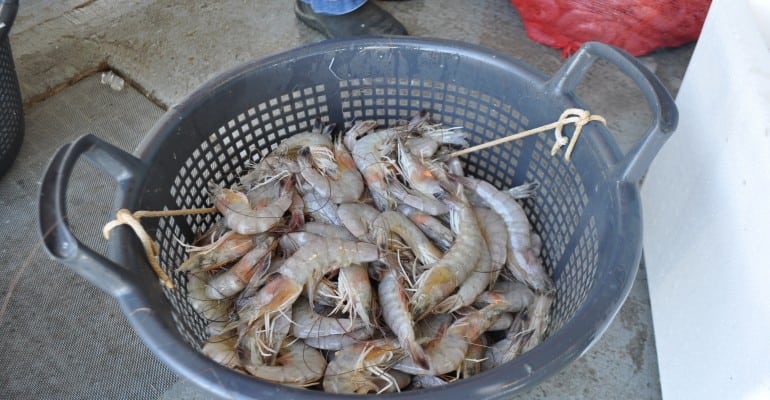The Gulf of Mexico Fishery Management Council will hold a public hearing in Gretna to discuss and take comment on proposed Shrimp Amendment 17A. The meeting will be held Thursday, January 14, 2016, at the Holiday Inn New Orleans Westbank,275 Whitney Avenue, Gretna, Louisiana. The contact phone number is 504-366-8535.
Shrimp Amendment 17A contains two actions. The first action addresses the expiration of the federal shrimp permit moratorium in the Gulf of Mexico. There is currently a moratorium on federal commercial shrimp permits, meaning no new permits are being issued. The shrimp permit moratorium is scheduled to expire October 26, 2016. The Council is considering whether to allow the moratorium to expire, extend the moratorium, or create a limited access permit.
The Council established the shrimp permit moratorium to ensure that the fishery would remain profitable for the participants remaining in the fishery. When the moratorium was put into place there were 1,933 shrimp permits issued. Since then, 463 shrimp permits were not renewed within one year of their expiration or have been surrendered, and have been removed from the fishery. As of December 31, 2014, there were 1,470 shrimp permits remaining.
The Council’s current preferred alternative is to extend the shrimp permit moratorium for another ten years.
The second action addresses the royal red shrimp endorsement that is required to commercially harvest royal red shrimp from the Gulf Exclusive Economic Zone. Established in 2006, the main purpose of the endorsement was to help inform data collectors about who is targeting royal red shrimp. Currently, there are a large number of endorsements but only a small number of active royal red shrimping vessels. It’s unclear if the endorsement accomplishes its desired goal of enhancing data collection, so the Council is considering whether to continue to require a royal red shrimp endorsement to harvest royal red shrimp.
All meetings begin at 6:00 pm local time and end no later than 9:00 pm local time.
Public Hearing Guides are posted on the Council website at: http://gulfcouncil.org/docs/Public%20Hearing%20Guides/Shrimp%2017a%20Guide.pdf.
Public comments can be posted online at: http://gulfcouncil.org/council_meetings/comment_forms/Shrimp%20Amendment%2 017%20-%20Permit%20Moratorium.php.
Additional information can be found on our Scoping through Implementation Page: http://gulfcouncil.org/fishery_management_plans/scoping-thru-implementation.php.




